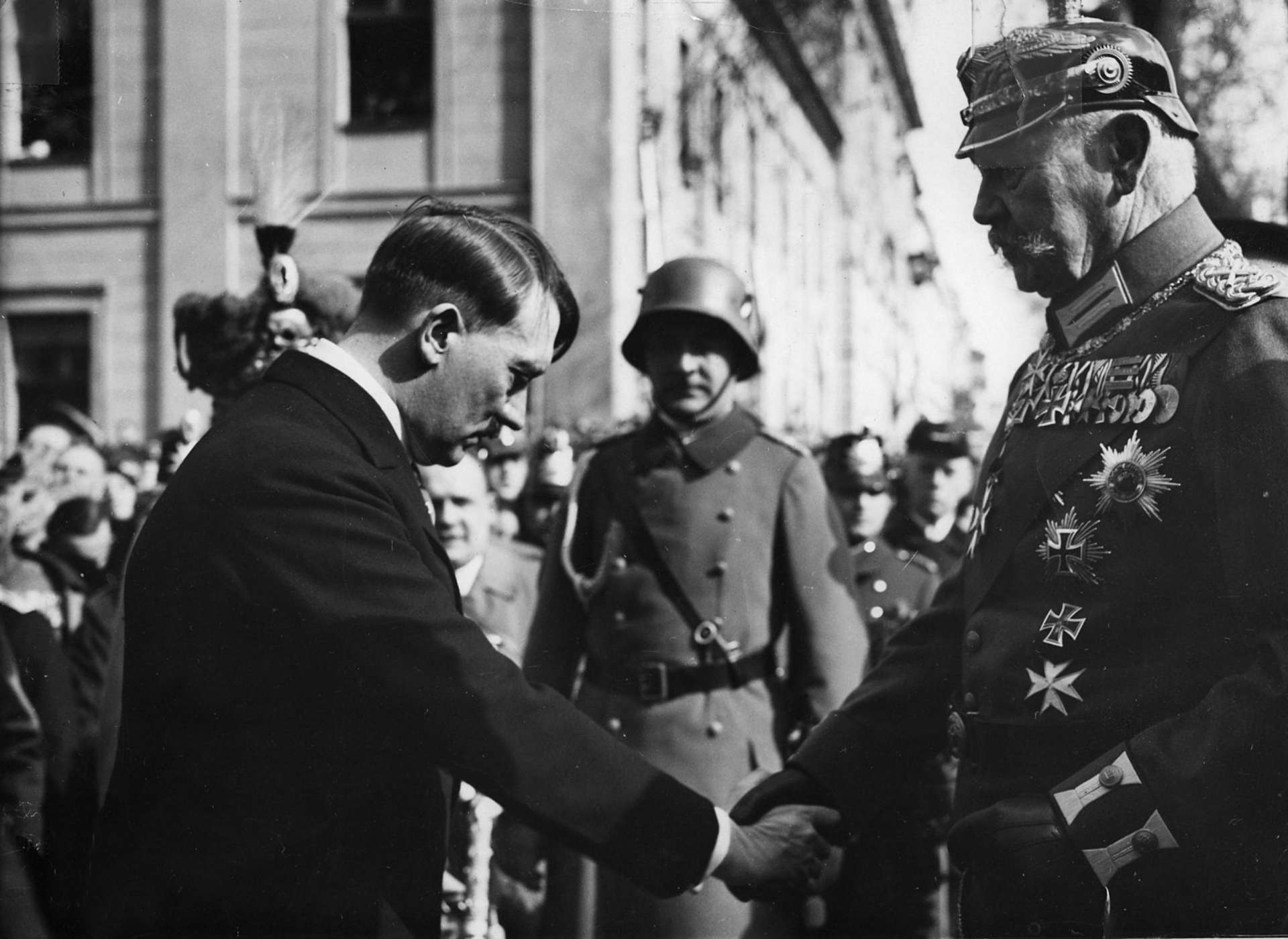It was 98 years ago this week, that an unknown group of German fascists first gained international attention, after a failed attempt at a coup d’etat. The large group first gathered at a huge Beer Hall in Munich, called the Burgerbaukeller. This fortuitous incident later became known as the “Beer Hall Putsch”.
The leader of the coup was an unknown 34 year-old former soldier, called Adolf Hitler. Like many Germans, Hitler was consumed with anger after the Great War ended with an Allied victory. Many Germans believed that their forces didn’t actually lose on the battlefield, and came to the preposterous conclusion that the only reason the German Government surrendered to the Allies, was because it had became infiltrated by Jews and Communists, who had secretly decided to betray the nation. Hitler referred to these imaginary villains as the “November Criminals”.
The untried Nazi leadership had also convinced General Erich Ludendorff to come along, because they needed a famous name to lend them some credibility. That evening, over 600 Nazi paramilitary surrounded the Hall, while Hitler went inside and told the 3000 strong crowd that the revolution had started, and quickly persuaded them to join him in marching to the Bavarian state capital, in downtown Munich.
The Nazi’s plan was to use Munich as a base of operations, and mobilise a larger force. Once assembled, this force would then storm into Berlin, and overthrow the federal government – just as Mussolini and his Fascists had done in Rome, just one year earlier.
Initial Failure
However, the plan failed and the State Police triumphed. Many Nazi insurgents were arrested, and 16 were killed. Hitler initially got away, but was later arrested, along with Rudolf Hess, Ernst Rohm and General Ludendorff. A young Heinrich Himmler was questioned by the Police, but was later released due to a lack of evidence. Hitler’s future second in command, Hermann Goring, was shot in the leg, but still managed to escape safely across the border, into Austria.
Hitler was convicted of treason, and sentenced to 5 years in prison, but only served 21 months. During his incarceration he wrote his famous manifesto, “Mein Kampf”. In the manifesto, he spoke of German racial superiority and the need for Germany to expand its territory and create more living space for its people. He linked Judaism to Communism, and claimed that these were the 2 most evil things in the world.
None of his ideas were original. Jews had been hated in Germany for centuries. Before the First World War, there was a concerted effort to expand the German Empire worldwide, just like the British had done. In the colony of German South West Africa (present day Namibia), the indigenous tribes (who were considered inferior) were routinely imprisoned offshore, or simply massacred.
The eerie similarities between these prisons and the future Nazi concentration camps, are no co-incidence. Of course, all authoritarian leaders follow this modus operandi. They don’t create bigotry in their societies. They feed off bigotry which already exists, and then amplify it, until it reaches demonic new levels.
Getting Elected Instead
When Hitler was released from prison, Germany was a more settled nation. Adolf promised to play by the rules, and the Nazi party ban was lifted. In the 1928 elections, the Nazi’s had their worst result yet, achieving only 2.6% of the vote. It was starting to look like the National Socialist German Workers Party was no longer a force in German politics, and would soon be confined to the dustbin of history.
Then came the Great Depression. Suddenly the Nazi’s had a golden opportunity to once again present themselves as a viable alternative to the weak and ineffective Weimar Republic. Lots of grandiose promises, combined with Hitler’s extraordinary ability to mesmerize a crowd, saw the Nazi’s popularity skyrocket.
The elections of 1932 saw the Nazi’s grow into the largest party in the Reichstag, winning almost 44% of the national vote. In January 1933, former Chancellor Franz Von Papen (who was keen on returning to power), persuaded President Paul von Hindenburg to appoint Hitler as Chancellor, and Papen as Vice Chancellor.
The two men thought that a Chancellor Hitler would be easy to control. They were wrong. Very, very wrong.

